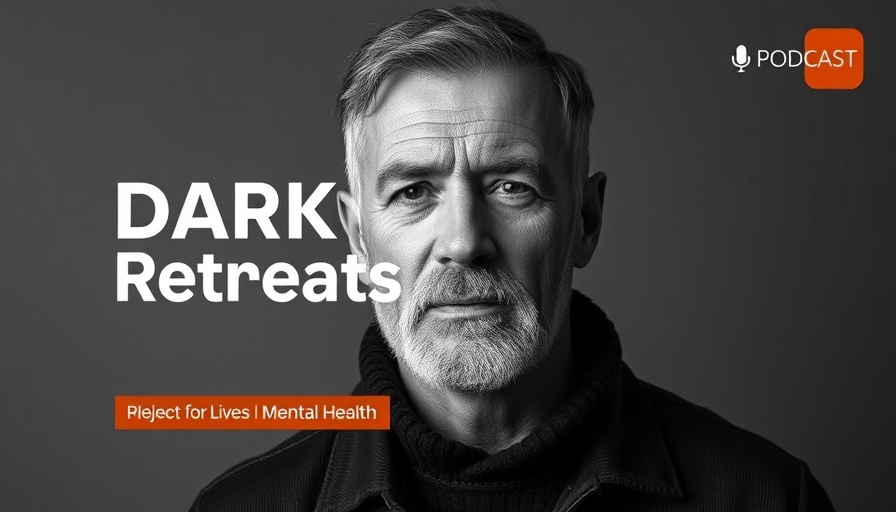
Exploring Dark Retreats: A New Approach to Mental Health
In recent years, increased focus has been placed on unconventional methods for improving mental health, particularly in a world rife with anxiety, stress, and depression. One of these methods, known as dark retreats, has garnered attention for its potential therapeutic benefits. This article delves into dark retreats, exploring their psychological implications, historical context, and the holistic approaches that underline their practice.
What is a Dark Retreat?
A dark retreat generally involves spending several days in complete darkness, often in solitude, to facilitate deep introspection and self-discovery. This practice can foster mindfulness and relaxation, important elements for those coping with anxiety disorders, generalized anxiety disorder (GAD), and social anxiety. Many individuals experience panic attacks due to their environments, and the retreat provides a unique space to explore these feelings away from common stressors.
The Historical Context of Dark Retreats
Traditionally, dark retreats have roots in various meditation practices across cultures, particularly within Buddhist and Hindu traditions. These practices highlight the relationship between spirituality and mental well-being. In modern contexts, their therapeutic relevance is gaining recognition, particularly in psychological circles focused on alternative treatments. With the rise of mental health concerns exacerbated by the COVID-19 pandemic, including increased rates of economic stress among individuals and families, understanding such holistic approaches is crucial.
Benefits for Mental Health
Dark retreats may offer various advantages, particularly for individuals battling anxiety and stress-related disorders. Participants often report enhanced self-awareness and emotional clarity. The absence of external distractions promotes relaxation techniques and mindfulness – essential strategies in cognitive behavioral therapy (CBT). Mental health surveys reveal that as many as 40% of young adults face anxiety or depression, making novel approaches like dark retreats increasingly relevant.
Addressing the Stigma Around Alternative Therapies
Despite the potential benefits, alternative treatments like dark retreats can face stigma. Conventional mental health strategies, such as counseling and medication, have dominated discussions about treatment. Stigma reduction is imperative in fostering acceptance of diverse mental health solutions. Public awareness campaigns, outreach programs, and peer support networks can elevate conversations about innovative therapies, encouraging open-mindedness among those hesitant to explore less-traditional options.
Complementary Practices and Holistic Healing
Dark retreats can be integrated with other holistic practices like yoga, mindfulness, and art therapy. This multifaceted approach addresses anxiety and promotes overall wellness. For students and caregivers, incorporating these methods into daily routines can mitigate school-based stress and enhance coping strategies for anxiety. For individuals grappling with chronic illnesses or PTSD, holistic therapies offer a dual-focus on both the mental and physical aspects of distress.
Future Insights: Dark Retreats in Mental Health Treatment
As conversations about mental health progress, dark retreats may find their place alongside conventional therapies within a broader treatment landscape. The advent of digital mental health platforms and teletherapy has already simplified access to mental health resources. Incorporating retreats into a digital conversation about mental wellness could further validate their use and inspire implementation in mental health policy discussions.
Practical Considerations for Individuals Interested in Dark Retreats
Individuals seeking dark retreats should carefully assess their mental health conditions and consider consulting with a mental health professional beforehand. There are numerous online resources and support groups dedicated to navigating unconventional therapies, providing individuals with the tools necessary to enhance their mental health journey. Education about these practices will empower patients to make informed choices and advocate for their own well-being.
A Call for Continued Mental Health Innovation
As society evolves, so too must its approach to mental health. Exploring innovative methods like dark retreats highlights a growing understanding of mental health nuances and the need for comprehensive care that includes alternative therapies. By implementing these strategies, we can ultimately create a more inclusive conversation about mental health that embraces all paths to healing.
In conclusion, while dark retreats represent a unique approach to managing mental health, they also serve as a reminder of the diverse strategies available to those navigating anxiety, depression, and other related disorders. As mental health awareness continues to gain momentum, it is crucial to remain informed about all potential treatment options and imperfections therein.
 Add Row
Add Row  Add
Add 




Write A Comment